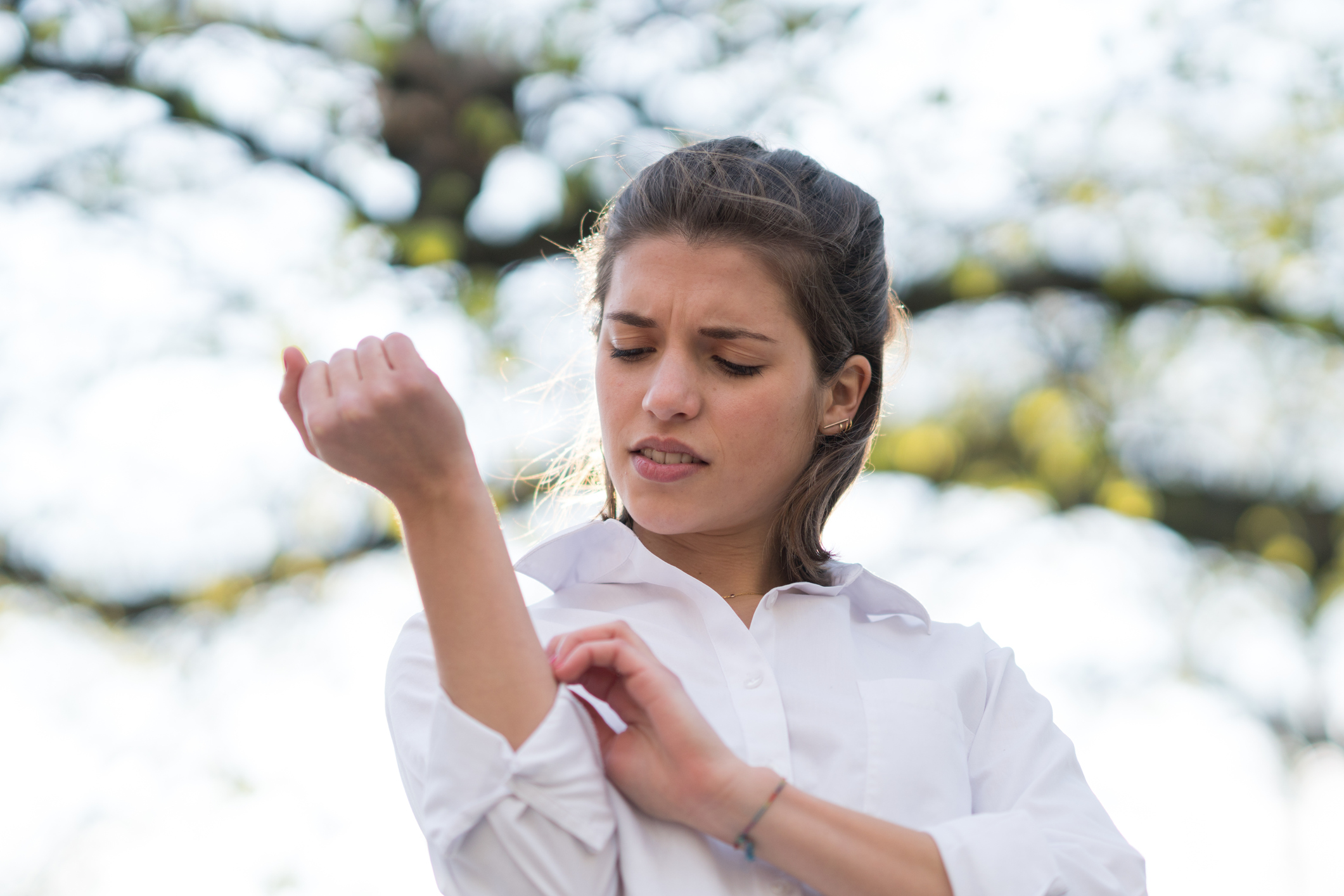-
What is psoriasis?
Psoriasis is a non-contagious skin condition caused by overactive parts of the immune system. This leads to the skin turning over much faster than usual, leaving sufferers with inflamed, thick and scaly areas of skin.
Those people with mild to moderate forms of psoriasis can generally work normally and enjoy life. However, if it is severe, psoriasis can be debilitating, particularly for sufferers’ mental health.
Misconceptions about psoriasis can have serious consequences. For example, the myth that psoriasis is contagious can leave those with the condition feeling embarrassed, anxious, unattractive and depressed.
Who is affected?
Psoriasis is a common skin condition affecting just over 2 per cent of the world’s population. Men, women, children, and even newborn babies can suffer from the condition.
About 480,000 people in Australia suffer from some form of psoriasis. The condition usually occurs in people in their early twenties, but can also start in people between 55-60 years of age.
What causes psoriasis?
Psoriasis is not contagious. It’s not caused by poor hygiene, and is not merely a cosmetic condition.
The exact cause is not known, but it’s thought to be related to an immune system problem with T-cells. T-cells normally travel through the body to defend against foreign substances, such as viruses or bacteria. If you have psoriasis, your T-cells attack healthy skin cells by mistake, as if to heal a wound or to fight an infection. This causes the skin cells to grow more quickly, causing inflamed, thick and scaly skin.
Researchers are unsure why T-cells malfunction, but they believe both genetics and environmental factors play a role.
Triggers
A number of things can trigger an episode of psoriasis, and they tend to vary from person to person. Triggers can include stress, scratches and bites, sunburn or cold, dry weather.
Diagnosis
As skin rashes are common, doctors have to rule out other skin problems, such as allergies, viruses, or eczema, before they can diagnose psoriasis. A psoriasis diagnosis requires careful visual inspection and sometimes even a skin biopsy. Visit your GP, or ask for a referral to a dermatologist if you think you might be suffering from psoriasis.
Treatments
There is no cure for psoriasis, but the symptoms can be managed effectively. These days, it is possible to make psoriasis disappear completely for long periods of time in some patients.
Treatment options will depend on the type and extent of the person’s psoriasis. Some common examples of treatments include:
- Topical preparations, such as lotions, creams or ointments
- Oral medication
- Ultraviolet light administered under the supervision of a dermatologist; or
- Biologics - modern drugs that use cutting edge technology to target specific parts of the immune system.
While there is no cure for psoriasis, there are many ways to relieve symptoms. Visiting a dermatologist is the best way to find out about the treatment options available.
Patient information
The Skin & Cancer Foundation Inc aims to improve treatment outcomes for psoriasis patients, and increase public awareness of the condition.
To coincide with World Psoriasis Day, the Skin & Cancer Foundation Inc will be hosting a patient information evening on Monday, 30 October 2017 in Melbourne. All patients, carers and their families are welcome to attend, and catering will be provided. For those people living in regional Victoria, interstate, overseas or are just unable to attend, the event will be live webcast.
For more information about this information evening, or the webcast, and to register to attend, visit the Skin & Cancer Foundation Inc website.
Understand psoriasis

-
What causes bad breath?
Find out how to keep your mouth smelling fresh
-
Signs to look out for when a cold is getting more serious
When you should see a doctor for a cold.
-
The health checks to keep in mind at different stages in your life
Have you had these health checks?
-
Bowel cancer: risks, symptoms, diagnosis and treatment
Learn more about bowel cancer
-
Flu myths debunked
Is 'man flu' real? Can you catch the flu from the flu vaccine? We separate flu facts from flu fictions.
-
Where to get health support in Australia
An Overseas Student Health Cover member’s guide to key health services and when to use them.
Subscribe to receive the best from Live Better every week. Healthy recipes, exercise tips and activities, offers and promotions – everything to help you eat, move and feel better.
By clicking sign up I understand and agree to Medibank's privacy policy






